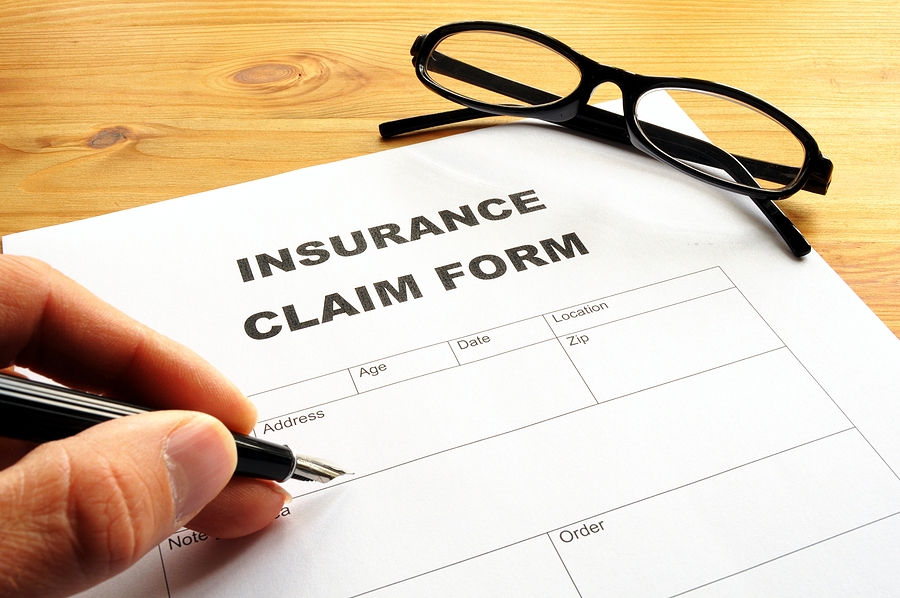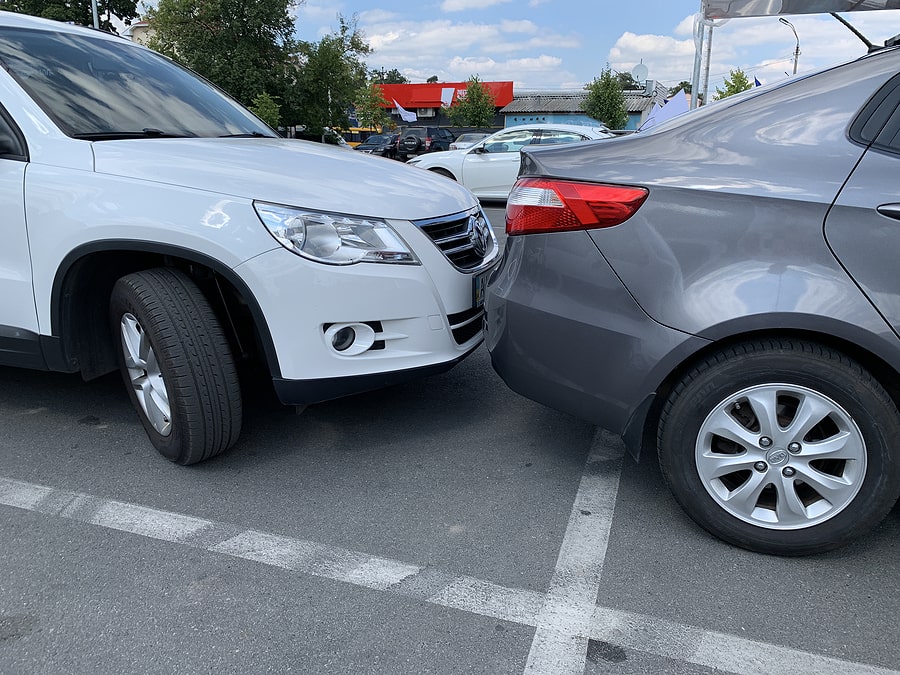If you get hurt in an accident of any kind, you can and should protect your rights and pursue compensation. This usually involves working with insurance companies, and there are two main paths you’ll need to take:
- You may need to file a claim with your own insurance company after your accident
- You may also need to file a claim against a third party’s insurance company after your accident
Not everybody knows this, but sometimes after an injury or accident, you may need to submit both first- and third-party insurance claims. It all depends on how and why your accident happened.
Below, we’ve covered the basics of third-party insurance. Read on to find out more about how the insurance process works following an accident caused by someone else, or reach out now for a convenient, confidential, FREE consultation.
Third-Party Insurance
Third-party liability coverage is one part of an insurance policy. Third-party insurance helps protect you if you are sued by someone else for property damage or physical injuries. You may also have heard third-party insurance referred to as “legal liability coverage.” This is typically the most basic auto insurance coverage.
What Is a Third-Party Insurance Claim?
There are three parties in a third-party insurance claim:
- The insured individual
- The insurance company
- Another individual
Third-party claims are made by individuals who are not policyholders of the insurance company in question. The most common type of third-party insurance claim is a liability claim. These arise when a third party is responsible for some sort of accident (like a car accident).
What Is the Difference Between a First-Party Insurance Claim and a Third-Party Insurance Claim?
First-party insurance claims are claims you make against your own insurance. Third-party insurance claims are claims you make against someone else’s insurance (or claims someone else makes against yours).
Also, because injured parties do not usually have policies with the insurers who provide third-party coverage, those injured parties can make claims for damages not normally covered under insurance policies.
A Quick Overview of First-Party Insurance Claims
Feeling lost already? One of the easiest ways to understand third-party insurance claims is to understand what they are not.
First-party claims are very common and can prove helpful after an accident. You may file a first-party claim if you wish to take advantage of the following kinds of insurance coverage:
- Underinsured or uninsured motorist coverage
- Medical bills (under some certain insurance policies)
- Collision coverage
- Comprehensive coverage
- Rental coverage
- Towing
Filing a first-party insurance claim is simple. You’ve already taken out your insurance policy and you already pay the bill, so all that’s left is to actually make the claim. This is easily achieved by calling and notifying the insurance company of your accident, and asking them to pay you for your losses. You should be assigned a claim number and a claims specialist from your insurance company.
Identifying the Responsible Party
Before you know which insurance to go after or which kind of claim to file, you must first determine liability for the accident. Sometimes it’s obvious who caused an accident, but other times, the responsible party is not always apparent.
The truth is that lots of personal injury claims seem simple and clear-cut, but few of them actually are. If there is no thorough investigation of your case, and nobody with the knowledge of liability law on your side, preliminary findings about your accident could point the finger at the wrong person… even you! Don’t get blamed for an accident you didn’t cause.
This is where an attorney could greatly benefit your case. Lawyers have professional experience in proving liability and determining who is responsible for all kinds of accidents.
The Claims Process
Regardless of whether you file a first- or third-party insurance claim, the claims process begins in much the same way. You’ll need to inform the insurance company (either yours or a third party’s—or both) of the accident and your losses.
Then, your claim will be assigned a claim number. There will also be a claims adjuster appointed to handle and investigate your case. The adjuster is the primary person you will speak with and explain the damages you’ve experienced.
The adjuster may or may not ask for more information. At some point, they’ll decide what they think your case is worth. They may agree to give you the amount of money that you asked for, but most of the time, the initial offer is lower. You can negotiate further or file a formal claim in court to fight low offers like these.
Third-Party Insurance Claims for Property Damage
If someone else damages your vehicle or other property during an accident, you can seek compensation. Repairs and replacement costs are compensable (depending on the circumstances surrounding the accident, of course).
Most third-party insurance claims for property damage are not paid directly to the person who filed the claim. Instead, the insurance company will directly pay an entity (like an auto shop) for required repairs.
- Note: If your car is totaled in the accident, the insurance company may offer to pay you the actual cash value (ACV) of the car. A car’s ACV is based on its make, model, year, and condition at the time of the accident.
Third-Party Insurance Claims for Bodily Injury
It’s very common for people to be hurt in accidents. If you were hurt, you could be eligible to file a third-party insurance claim that will compensate you for medical bills, treatment costs, and so on. These claims are generally settled through an offer of a lump-sum settlement payment.
The Insurance Company’s Right to Inspect
Keep in mind that insurance companies have the right to inspect the damage after the accident and obtain their own estimate of needed repair costs. They need to make inspection demands reasonable, so it should happen at your convenience, according to your schedule and availability. However, this assessment can still seriously affect the outcome of a negotiation.
- You should not need to get more than one inspection (but you can get a second opinion if it helps you negotiate a larger settlement)
- You can try to avoid being forced into an inspection by getting one preemptively yourself
- You should be present for the inspection
What if the Other Party’s Insurance Wants Me to Sign a Release or Settlement Offer?
Don’t do it—certainly not without your lawyer’s approval! You’ll always have the option to sign something like this later, but if you accept a low offer prematurely, you can’t take your signature back.
We also recommend avoiding signing medical releases when it comes to insurance companies. Depending on how the agreement is worded, the insurance company may actually gain the right to call your doctors. They also gain access to all of your past medical history—not just medical information concerning the crash. Most insurance companies use this to try to devalue claims or uncover preexisting conditions.
Tips for Compensation In a Third-Party Insurance Claim
If you need to make a third-party insurance claim, you probably have questions about how to improve your chances of receiving fair compensation. Unfortunately, you can’t always “win” when it comes to insurance agencies. Even if you take all of these steps, you might still find that your settlement offer is too low.
That’s where a skilled lawyer can help—but we’ll delve into that later.
For now, here are some tips for maximizing compensation in a third-party insurance claim:
- File an accident report with the police: This will be an important piece of evidence for your settlement or case. In some cases, accident reports play an integral role in proving fault for an accident. They also record important details like the time and place, and who was involved in the accident.
- Get thorough information from other people involved in the accident: Let’s say you’ve been in a car accident. Provided you and everyone else are medically stable after the fact, it’s a good idea to collect information from the other driver involved in your accident. You should collect their name, contact information, insurance carrier and policy number, driver’s license number, license plate number, etc.
- Ask for witnesses’ names and phone numbers: You won’t need to work with witnesses directly on your own, but they may be called to help with your case in the future. You can save yourself a lot of hassle by collecting witness information at the scene of your accident.
- Take photos: If you’re able to, take videos, too. Capture your injuries, any damage done to your vehicle, and any other potential pieces of evidence or signs of a crash (like debris or skid marks in the road.)
- Write down the details: While the accident is still fresh in your mind, it’s a good idea to take the time to write out an account of what happened. Time can impact our memory, but journaling can help you preserve the facts.
- Save documents, bills, receipts, etc.: You should save anything you can that has to do with your accident or the results of it. This means medical bills, receipts, documentation from medical and law enforcement professionals, and so on.
- Find a reliable personal injury attorney: We always recommend finding a qualified lawyer who can help you with the claims process. With their help, everything will progress more smoothly.
If you have more questions about the best way to approach a third-party insurance claim, we recommend consulting a personal injury attorney. They can address your questions and concerns, plus let you know the best approach to your potential next steps.
What if I Couldn’t Collect Evidence After My Accident?
We always recommend collecting as much evidence as soon after an accident as possible, but we know this isn’t always an option. Many accident victims are hurt badly enough that they cannot perform these tasks. This is one scenario where working with a lawyer may prove especially beneficial. If you partner with someone who’s accustomed to proving liability and collecting evidence to create a strong case, you don’t need to worry about a lack of preliminary details concerning your accident. Your lawyer will conduct their own investigation and gather all available evidence for you.
Litigation: Reaching a Settlement in an Insurance Dispute
Litigate means “to take legal action.” In some cases, litigation is necessary to settle your dispute and receive a fair insurance payout. During litigation, a case goes through court, where a lawyer presents your side of the story and a judge or jury determines the outcome.
Any type of insurance claim can be solved through litigation, but luckily, these cases can be settled out of court most of the time. Alternative dispute resolutions, known as mediation and arbitration, will be attempted before litigation. Sometimes, however, litigation is the only option to settle an insurance dispute fairly. An attorney can help you litigate a case if it needs to escalate to that point.
How a Lawyer Can Help
There’s a lot that goes into filing an insurance claim. When a third-party claim is involved, the process gets a little more confusing. This is where an attorney can come into the picture and help make things easier. A personal injury attorney can help in the following ways:
- Keeping track of records and paperwork relating to your case
- Meeting important deadlines
- Coordinating care and scheduling appointments for you
- Compiling evidence to strengthen your case and determine liability
- Calculating the value of your claim based on your expenses and suffering
- Negotiating with insurance adjusters to secure a fair offer
- Fighting for you in the courtroom, if necessary
At your first meeting, a lawyer can help you determine where you are in the claims process. Next, they can help you take steps to bring your claim successfully, and fight for your rights if your case escalates.
What Damages Can I Recover?
The most common questions we receive at our personal injury firm concern what sort of compensation is available when you file a third-party insurance claim.
Your losses, expenses, and suffering are collectively known as your “damages.” You may receive compensation for these damages through your claim, but you can also work with a lawyer to pursue them if your claim valuation is too low. Damages commonly include the following:
- Medical bills: Including past, present, and projected medical bills associated with the accident, the costs of emergency transport, diagnostic imaging, surgeries, prescription medication, therapy, and much more.
- Property damage: For damage done to your vehicle or other belongings.
- Pain and suffering: Along with the physical experience of being injured, you’re likely dealing with pain and suffering that interrupts your daily life.
- Mental anguish: To help compensate for some of the mental and emotional aspects of being hurt in an accident, such as PTSD, depression, or heightened anxiety.
- Lost income: For when injuries cause somebody to miss time from work.
- Diminished earning capacity: In cases where someone’s ability to earn money and work has been permanently reduced due to their injuries.
- Loss of consortium: If a spouse wishes to pursue damages for loss of sex life, marital enjoyment, companionship, help around the house, and so on.
- Disability & disfigurement: If an accident left you permanently disabled or scarred, you can seek compensation for the impact this will have on your daily life.
A personal injury attorney can help you determine the damages you may pursue following an accident. If you have more questions about third-party insurance, what to do after an accident, or which steps to take to protect your rights, reach out to an experienced lawyer for help.





